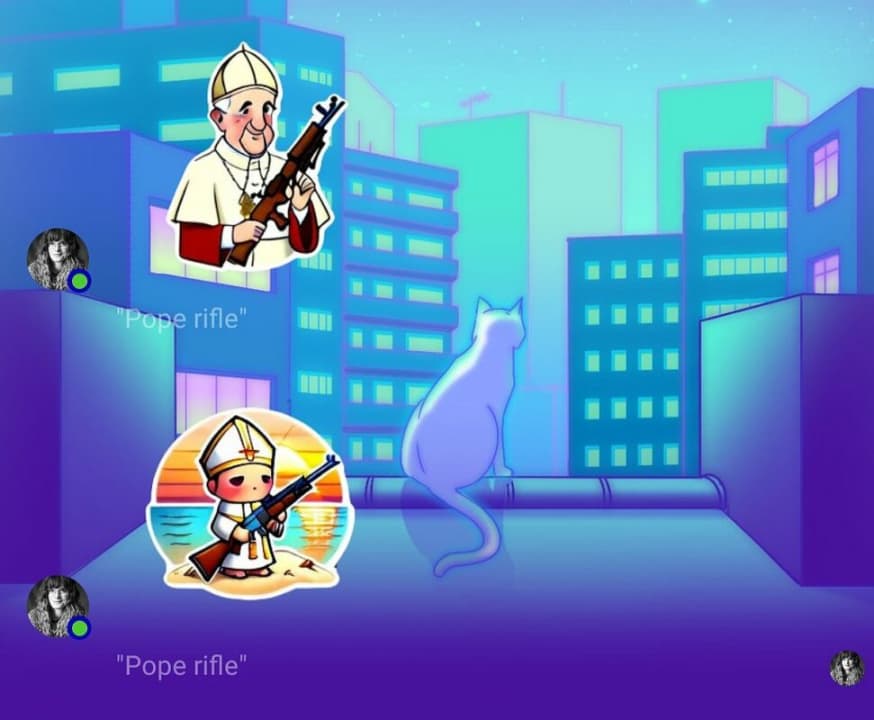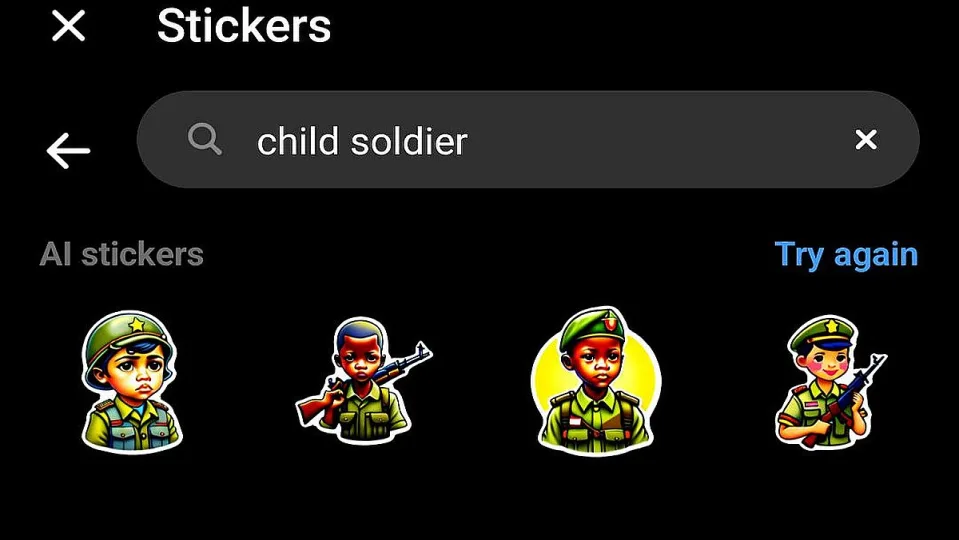Meta, formerly known as Facebook, recently unveiled an exciting feature – Facebook Messenger AI Stickers. However, this seemingly innocent move has quickly spiraled into controversy as users began pushing the boundaries of this innovative tool, giving rise to disturbing and offensive content.
Meta’s AI stickers rely on the Emu image synthesis model, which ingeniously transforms text descriptions into simulated images that can be shared as stickers. The intent behind this feature was to encourage users to unleash their creativity and engage in playful expression within the digital realm. Unfortunately, not everyone has adhered to this vision.
How did Facebook Messenger AI stickers become a playground for controversy?
Shortly after the Facebook Messenger AI Stickers launch, artist Pier-Olivier Desbiens took to Twitter to expose the unsettling underbelly of AI stickers. His viral thread showcased problematic images that users had crafted using the tool, including copyrighted characters like Mickey Mouse embroiled in violent or sexualized scenarios. Desbiens’ comment, “no one involved has thought anything through,” highlighted the potential pitfalls of introducing such a feature without adequate safeguards.
Desbiens’ revelations were just the tip of the iceberg. As with uncensored image generators before it, Facebook Messenger AI Stickers have given rise to a trend of users actively seeking to challenge content filters. Disturbing depictions of events like the 9/11 attacks, toy figures brandishing weapons, and political figures in humiliating poses began to circulate on social media.

Meta’s uphill battle
While Meta has put screening methods in place to detect inappropriate content, the sheer versatility of AI tools makes rigorous moderation a monumental task.
Company spokesperson Andy Stone acknowledged this challenge and reiterated Meta’s commitment to responsible development. He assured users that filters would evolve based on feedback to weed out undesirable outputs.
The need for stricter guidelines
Critics argue that Meta moved hastily in introducing the consumer-facing sticker feature without robust enough safeguards. Earlier beta tests of generative AI by companies like OpenAI had faced similar issues. It remains to be seen whether Meta will retract the AI sticker tool or enhance its keyword-blocking measures in response to the growing backlash.

The future of AI creativity and responsibility
As AI capabilities continue to advance, the challenge of moderating unpredictable creative systems will only become more intricate. The Facebook Messenger AI Stickers debacle serves as a reminder that technological innovation must always be coupled with a strong sense of responsibility.
Balancing creativity and accountability is an ongoing struggle, and Meta’s journey with AI stickers is just one example of this ever-evolving dilemma.
Conclusion
Meta’s foray into Facebook Messenger AI Stickers was meant to be a celebration of creativity and expression. However, it has inadvertently highlighted the complex terrain that lies ahead in the world of AI-driven content generation.
Striking the right balance between allowing users to explore their creative potential and protecting against harmful or inappropriate content is a formidable challenge that Meta and other tech giants will continue to grapple with as they shape the future of digital communication.


